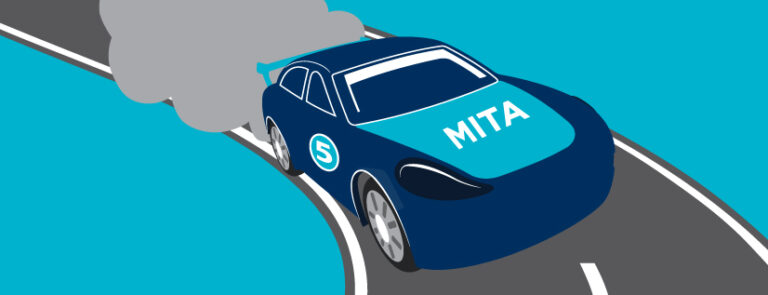Background to the changes
An application was filed with the FWC, requesting that it amend certain clauses in the Award in order to provide more clarity around an employee’s minimum pay and car allowance entitlements in circumstances where the employee is required by the employer to either start or finish work at a location other than the employer’s business premises.
The application was made on the basis that the current construction of the Award was vague and unclear in relation to these matters and, as such, required the intervention of the FWC.
More specifically, the application requested that the FWC amend the Award to remove any doubt or ambiguity about the following two matters:
- where an employee is required by the employer to start or finish work at a location other than the employer’s business premises, the time spent travelling to such locations which exceeds the employee’s normal travel time to or from work, should be considered part of the employee’s ‘ordinary hours’ of work; and
- where the employee is required to undertake such excess travel time and is required to provide a motor vehicle to perform their duties, the employee is entitled be paid the applicable motor vehicle allowance prescribed by the Award.
In its decision, the FWC stated that the variation was necessary “to ensure that it makes clear when employees are working and the circumstances in which they are paid motor vehicle allowances”.
Importantly, the FWC noted that “the variations simply clarify provisions of the Award that employers should already be applying….and covers only excess travel and associated expenses rather than all travel” (see the meaning of “excess travelling” below).
For the interest of members, the actual Award variations are as follows.
The Variation Decision
The Award variation decision inserted the following new clause 17.11:
17.11 Excess travelling
(a) If the employer requires the employee to start or finish work at a location other than the employer’s business or office premises, the employee must be paid for time reasonably spent by the employee travelling to or from the location which is in excess of the time normally spent by the employee in travelling between the employee’s usual residence and the employer’s business or office premises, on each occasion such excess travel is undertaken.
(b) Such excess time is to be treated as working time under clause 13 – Ordinary hours of work and rostering, or clause 19 – Overtime and is counted for the purposes of the minimum engagement for casual employees in clause 11.1, and paid at the ordinary rates prescribed in clause 14 or the overtime rates in clause 19, as appropriate.
(c) In addition to the payment for excess time spent travelling as provided in clause 17.11(a), if the employer requires the employee to use the employee’s own motor vehicle in the course of employment, the employee will be paid the applicable motor vehicle allowance in accordance with clause 17.2(b), 17.2(c) or clause 17.3 as agreed between the employer and the employee.
For further clarity, Clause 17.2(a) of the Award was varied, by inserting the underlined words, as follows:
(a) If the employer requires the employee to use the employee’s own motor vehicle in the course of their employment, including to undertake excess travelling as described in clause 17.11, the employee must be reimbursed for the use of their motor vehicle in accordance with clause 17.2(b), 17.2(c) or clause 17.3. Clause 17.2 does not apply to the use of a motor scooter or motor-cycle.
What is meant by the term “excess travelling”?
As the variations apply exclusively to excess travel time, it’s relevant to consider what is meant by this term. Excess travelling relates to the time and expenses that an employee may incur when they are required by the employer to start or finish work at a location other than the employer’s business premises.
This might be best explained by way of the following scenario:
Alice is a real estate salesperson with REEF Real Estate. Alice lives 10 kms from the office of REEF Real Estate. In morning and afternoon traffic, it would normally take Alice around 20 minutes to undertake her journey to and from work to home.
Alice is specially directed by her employer to conduct a 7.30am listing presentation at a location which is 25 kms from Alice’s home. Alice goes straight from home to conduct the listing presentation. It takes her 45 minutes to undertake this journey. Accordingly, Alice will travel 15 kms more than normal to get to the location of the listing presentation and spend 25 minutes extra to get there.
The 25 minutes extra travel time that it takes Alice to get to the listing presentation (compared to the time usually required to travel to the office) is considered “excess travelling” time. This 25 minutes must be treated as part of her 38-hour working week and paid as such by Alice’s employer.
If Alice is paid a motor vehicle allowance calculated on a per km basis, she will also be entitled to receive a motor vehicle allowance calculated on the excess travel distance of 15 kms.
NOTE: If Alice receives a motor vehicle allowance calculated as a ‘lump sum’ prescribed by the Award (as is most common in our industry), there will be NO extra reimbursement for travel costs.
A summary of other main features from this decision
- The changes to the Award outlined above become operative from 1 March 2024.
- To avoid any doubt, it should be observed that only employees covered by the Real Estate Industry Award 2020 are affected by the decision. With the exception of commission-only salespeople who are not affected in any way by this decision.
- Employees who are engaged under the Clerks – Private Sector Award 2020 are not affected by this decision.
- Excess travel time is counted as working time and must either be treated as ordinary hours of work or as overtime where the excess travel time was at the specific direction of the employer.
The practical impact of these Award changes for your agency
As the Award variation only seeks to clarify obligations that already existed under the Award, and which align with REEF’s past and present advice, for most members there will be no practical impact from this decision. This is because:
- under Clause 19 of the Award, an employee is not entitled to be compensated for work conducted outside their ordinary hours of work unless the employer has specifically directed them to do so; and
- most employers are paying the motor vehicle allowance by way of lump sum and the lump sum is reimbursement for all travel undertaken by the employee.
Ultimately, the employer has the right to decide where employees start and finish work. If employees start and finish work from the office then there is no excess travel.
The new award provisions do however highlight the need for employers to understand and recognise that where their employees (who are covered by the Award) commence or finish work other than at the employer’s office and this is done with the knowledge, direction or consent of the employer (however this may be given), the work performed at the location, and/or excess travel time spent getting to the location, should be considered part of the employee’s ordinary hours of work.
For those members who do specifically direct an employee to undertake excess travel time (or any other extra hours) in addition to their ordinary hours of work, overtime provisions will continue to apply.
For those members who are paying either a per cents Km allowance or the standing charge plus km allowance, employees will need to be reimbursed for any excess travel in line with the decision.
In view of the Award variation, REEF has modified a number of our template documents we provide to members via our web-based People Management System. In this regard, we wish to advise members that:
- The template Employment Agreement for Real Estate (Operational) Employees has been amended to include a definition of “Excess Travelling”; and
- Our Employee Handbook has been amended to include an updated “Hours of Work and Additional Hours of Work” Policy to reflect this decision. This amended policy should be downloaded and implemented after consultation with your employees.
Need Help in understanding the matters outlined in this notice?
If you have any questions about this variation or implementation of points 1 or 2 above, please call one of the advisors on 1300 616 170 or email [email protected] and they can provide you with further information and advice.


